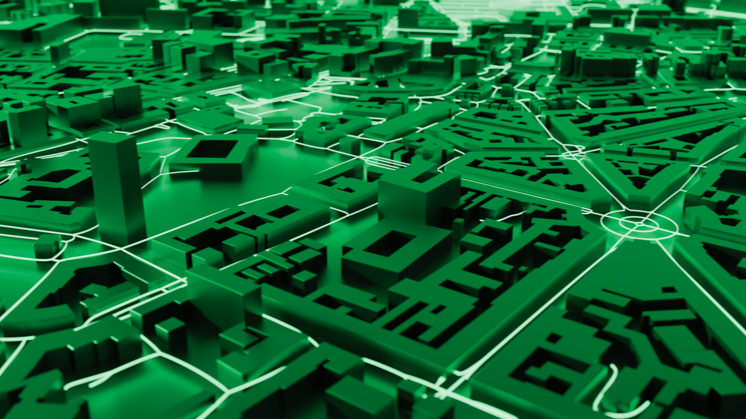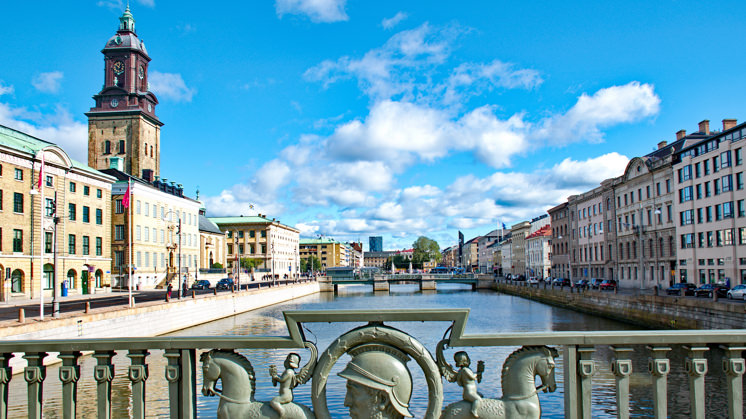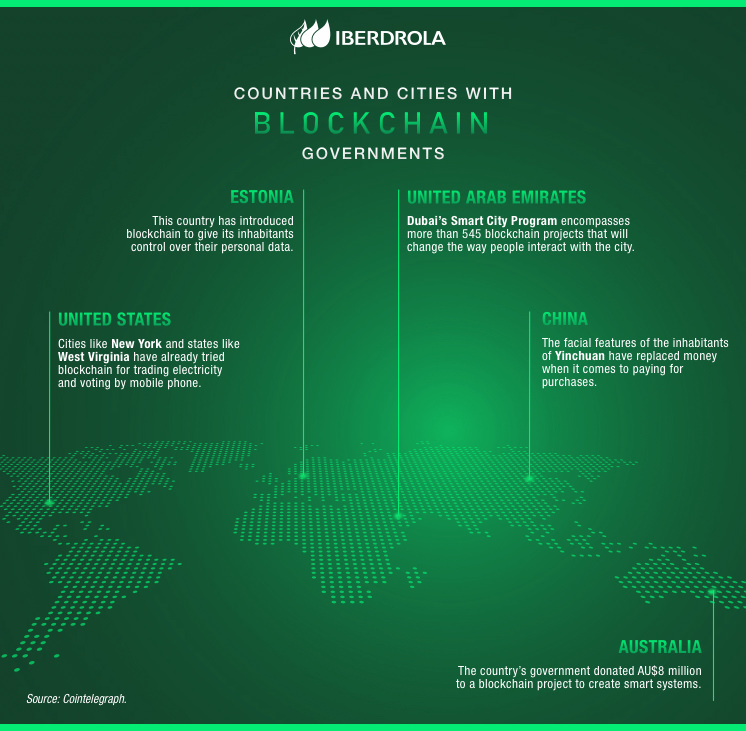BLOCKCHAIN4CITIES
Blockchain technology at the service of urban management
Blockchain technology is not only the basis of the cryptocurrencyBitcoin. This system for carrying out verifications and secure transactions on the Internet promises to revolutionise the management of smart cities with Blockchain4Cities, an initiative to coordinate, integrate and control different city services with transparency, efficiency and privacy.

The cities of the present increasingly resemble those of the future. There are still no flying cars or androids on our streets as prophesied by Ridley Scott in Blade Runner (1982) but there is a cryptographic technology in the form of blockchain that can help us build smart metropolises capable of generating €1.29 trillion worldwide by 2020, according to Bank of America Merrill Lynch.
BLOCKCHAIN4CITIES: THE PROJECT TO INTEGRATE BLOCKCHAIN INTO CITIES
Cities like Gothenburg, Chicago and Singapore are clear examples of innovative cities: highly digitalised and with a more advanced and sustainable urban management model for mobility, energy efficiency, waste treatment and citizen participation. These smart cities have inspired initiatives like Blockchain4Cities, a the United Nations (UN) working group to determine how blockchain can be applied to running smart cities.
The preliminary results of the research, in which 26 experts from various countries took part, highlight in particular the potential of blockchain for municipal governance because of its capacity to transmit information securely, with no intermediaries. Even so, experts point out that we are dealing with a technology that will not solve all urban management problems and that its use only makes sense under specific conditions.




ADVANTAGES OF BLOCKCHAIN FOR GOVERNING CITIES
According to Blockchain4Cities researchers, the most important benefits of blockchain for running cities include:
Increased transparency and connectivity
Cities can interconnect using blockchain vertical services, such as mobility, energy or security, through a single open, accessible, transversal system that is able to exchange data with their inhabitants in real time.
Direct communication
Blockchain makes it possible for government departments and the public to interact digitally, without the need for intermediaries. This would speed up, for example, bureaucratic procedures at registries, town halls, etc.
Integrity over information
With this technology it is possible to encrypt a file totally or partially in order to share only the part that is of interest, privately, securely and without the risk of its being manipulated by a third party.
Efficient management
Blockchain allows both the public and city officials to know the origin and destination of each resource. In addition, the latter can find out how city services are being used without compromising people's privacy.
USES OF BLOCKCHAIN IN CITIES
Among the cities with municipal blockchain-based initiatives, it is worth noting Dubai, which, with an investment of US$300,000 million, aspires to become the first city in the world to integrate blockchain into all its services by 2020. The following are examples of the use of this technology for urban management:
Security
Blockchain improves the protection of the personal data collected.
Energy
Smart blockchain-based contracts make it easier for solar-powered households to automatically trade surplus electricity with other members of the grid.
Mobility
Government departments can know which citizens use their cars daily and offer them discounts and advantages to encourage them to take public transport.
Waste
Blockchain can provide the public and the waste collection service with real-time information on containers so that they can always know whether they are full or empty.
Participation
Blockchain platforms guarantee the security, reliability, transparency and anonymity of public consultations, such as elections, surveys, referendums, etc.
In addition, blockchain technology can benefit other services, such as water resource management, air quality control or park and garden care.

PLATFORMS FOR SMART CITIES
Smart cities need appropriate and highly compatible technological ecosystems to be functional and develop successfully. Otherwise they will become isolated, with systems that are unable to communicate with each other because they speak different languages. Today there are several platforms that act as a framework for smart cities:
- United for Smart Sustainable Cities (U4SSC): this UN initiative aims to become the platform that drives information and communication technologies (ICTs) towards smart and sustainable cities. Is also the parent of the Blockchain4Cities working group.
- Fiware: the European Union (EU) is behind this free software platform that provides tools and a suitable ecosystem to developers of online applications and services. Although Fiware was not designed to specifically support smart cities, it is capable of ensuring interoperability between them.
- DownTown: is one of the systems best adapted to smart cities. This platform has some 13,000 to 20,000 domains in smart cities around the world (including London and Dallas), with the first experiment in access to local restaurants.




